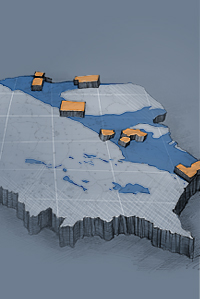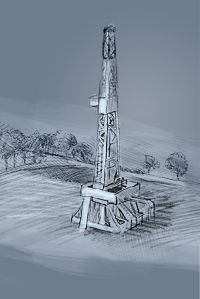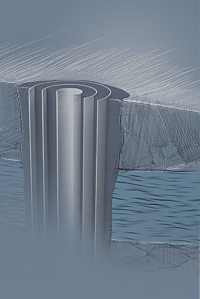An opportunity for Poland
With the demand for natural gas growing all across Europe, Poland’s largest shale gas reserves on the continent offer the country’s economy a unique opportunity that can be exploited for many years to come. The winners can include not only by the energy sector, but all of us.

Shale gas production forecasts compare Poland to Texas or, more often, to Norway, the country whose present economic position has been built on its post-war investments in energy resources. These comparisons may be exaggerated but they are still valid. Poland has a chance to become an important player on Europe’s unconventional fuels market. The most important of the potential benefits and one which is of strategic importance to us is improving Poland’s energy security. Currently, two thirds of the gas consumed in Poland is imported.
If we are able to develop our shale gas reserves, we could gradually become less dependent on external gas suppliers. Domestic production could satisfy the internal demand for gas fuel to an increasingly larger degree, which would not only enhance the country’s energy security but would also help reduce gas prices. If estimates of our indigenous gas resources prove to be correct, Poland, now a gas importer, could with time become an exporter of unconventional gas, especially to the absorptive European markets. This would facilitate international expansion and growth of Poland’s fuel and energy companies. It would also trigger further economic growth of the country, generate revenue for the state budget and help create new jobs.
Although we are only at the beginning of the way, certain positive developments are already being reported. “Shale gas has already started to give jobs and pays well”, “Gas exploration companies pay a fortune to professionals, invest in equipment and recruit massively,” wrote Dziennik Gazeta Prawna on October 25th 2011. The market will need professionals, engineers, managers and researchers. PGNiG wants to exploit, to the largest extent possible, Poland’s scientific resources. This is why in May 2011, jointly with the AGH University of Science and Technology, the Warsaw University of Technology and the Oil and Gas Institute, we formed Polish Unconventional Gas Development Work Platform, a consortium gathering scientific and industry organisations. The Platform’s objective is to develop techniques, technologies and methodologies for unconventional gas exploration and production.
Shale gas production will also require transport and transmission infrastructure. The need to build and operate such infrastructure will generate another lot of new jobs. Profits may also be derived by communes, local administrative units, where shale gas is to be extracted. The communes will collect taxes and royalties for gas production, and their budgets will undoubtedly benefit from the arrival of gas exploration companies.
Production of shale gas may also change the fuel structure of the energy market, with a shift towards a larger share of natural gas. This may be expected to affect other sectors of the national economy, not related to fuels or energy, as was the case in the US. Access to cheap gas may encourage other manufacturers to switch to this type of fuel to reduce their production costs. Importantly, natural gas is also the most environment friendly fuel. The more gas we use, the less carbon dioxide we emit to the atmosphere. Not only is this important for the protection of the environment, but also has its economic relevance. EU member states are bound by CO2 emission limits, the exceeding of which triggers financial penalties.




